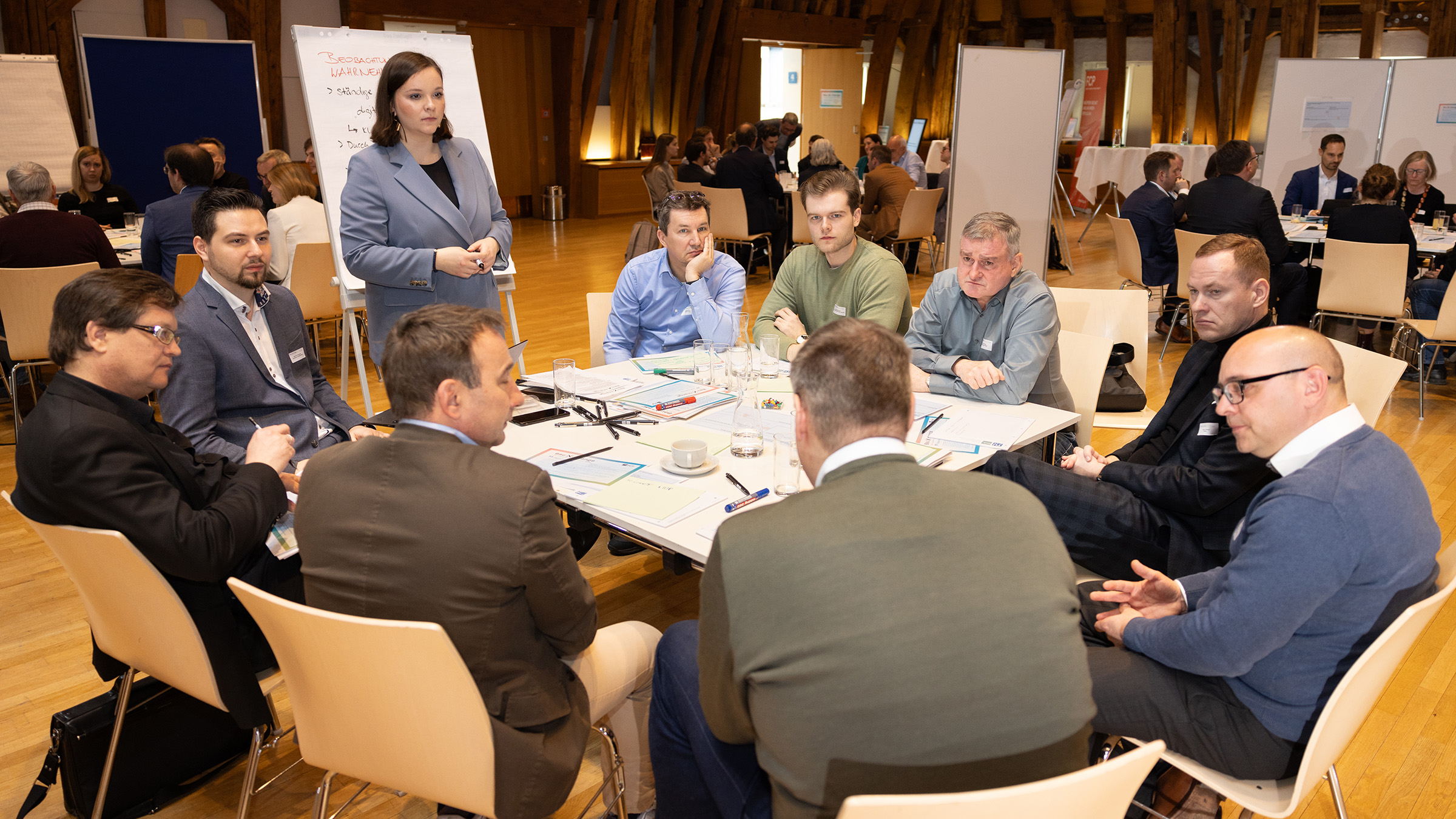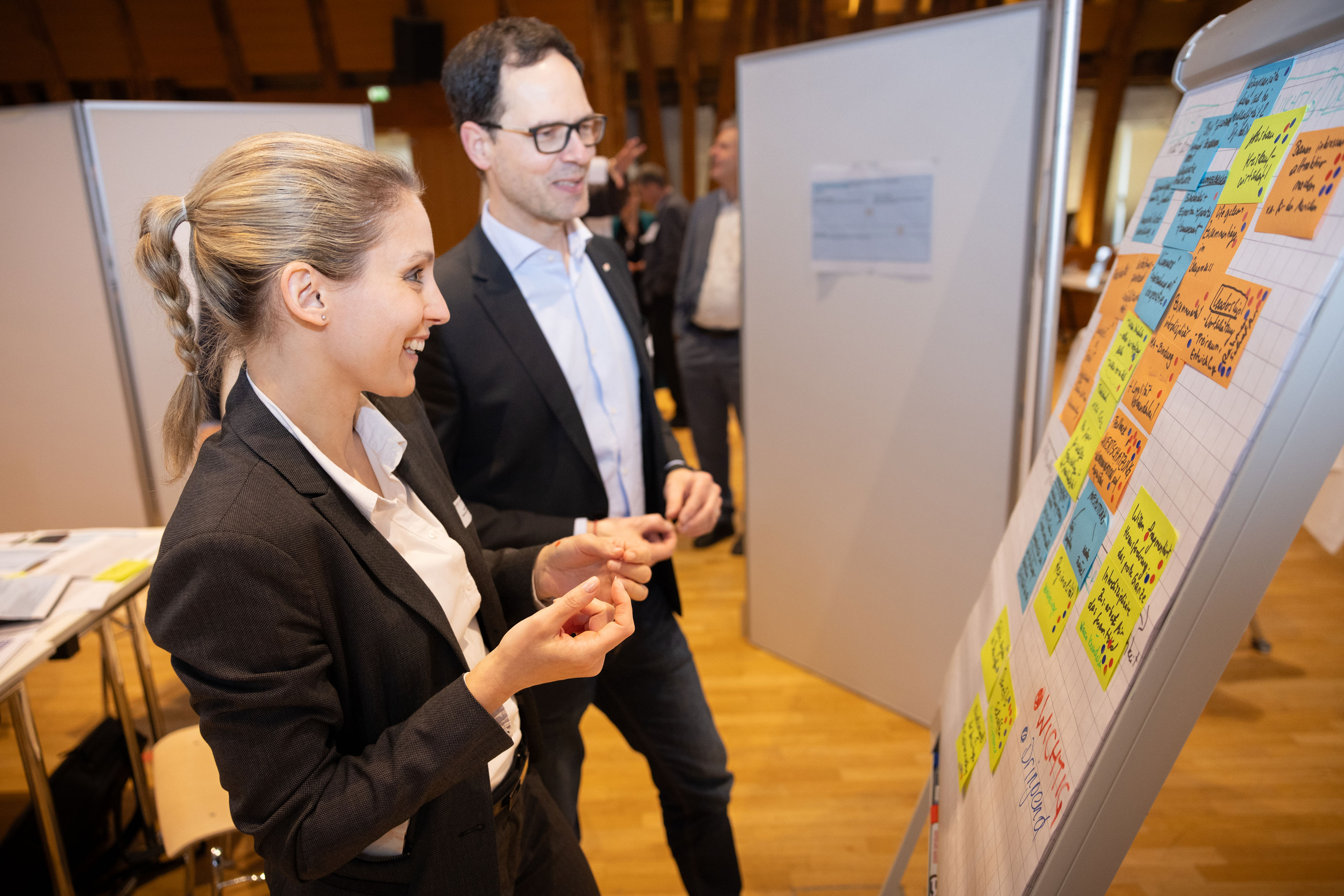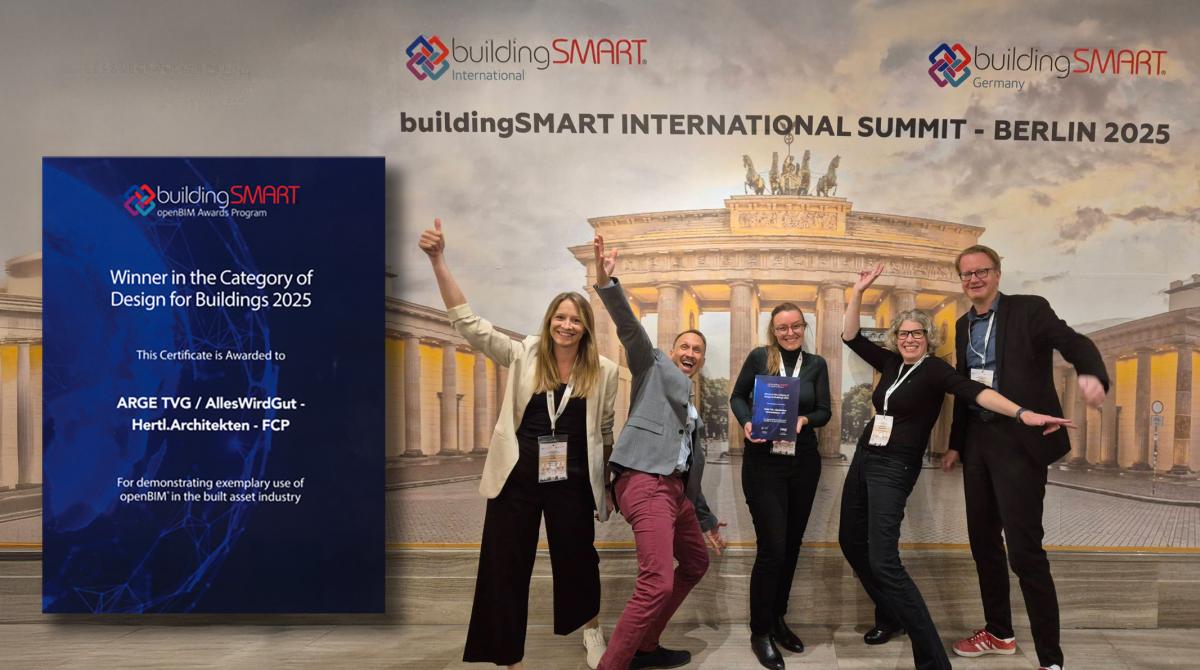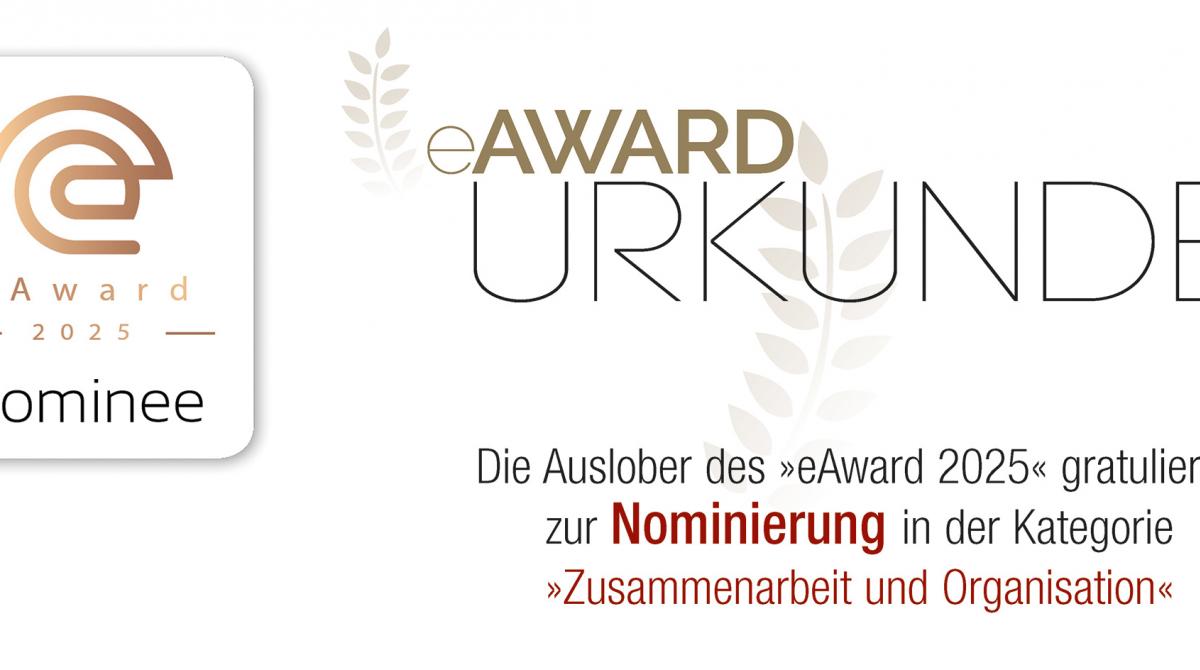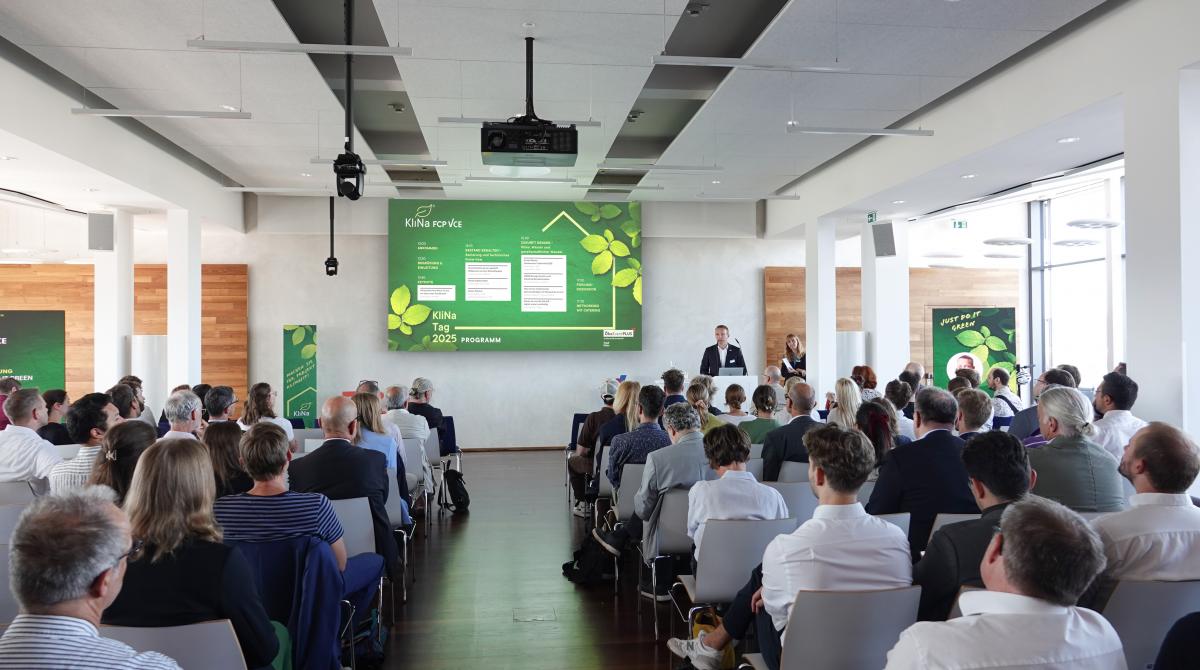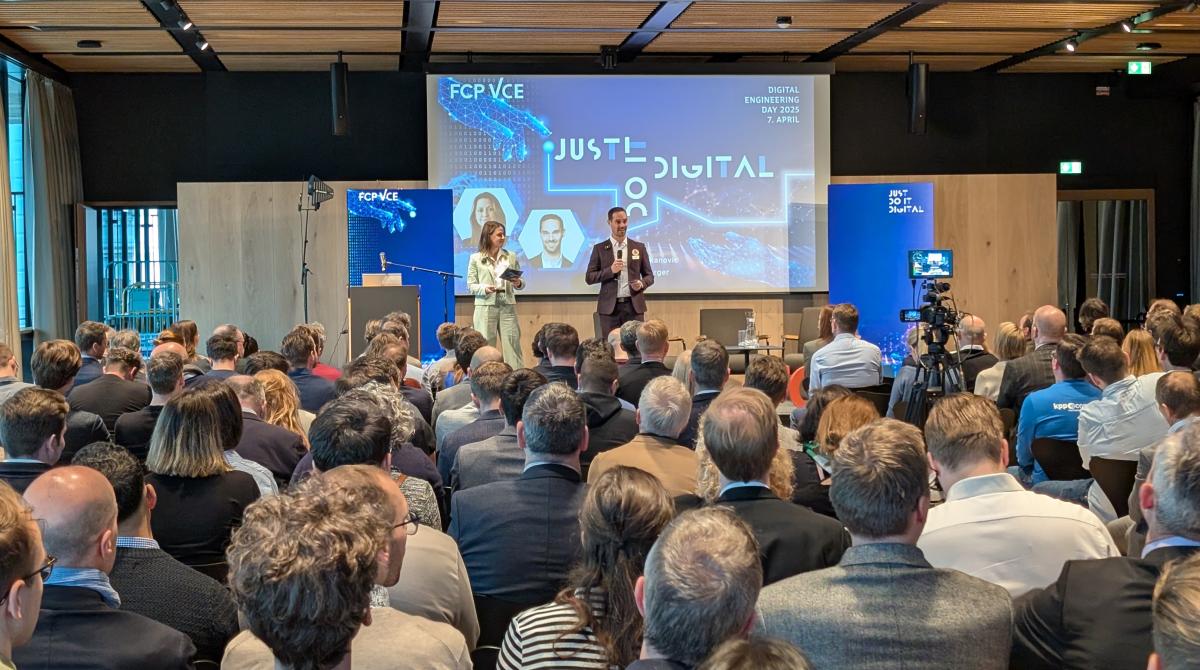Roadmap “Future in the Building Sector”: With BauXchange into a building sector fit for the future
Vienna, in April 2024._ The all-day workshop called BauXchange under the motto “Shaping the future together” organized by the Vienna University of Technology supported by FCP on 7 March 2024 for the first time provides interesting approaches for a successful change of the building industry.
The Institute of Construction Process and Construction Economics at the Vienna University of Technology supported by the consulting engineering office FCP (Fritsch, Chiari & Partner ZT GmbH) organized an all-day workshop with the title BauXchange in Kuppelsaal of TU Wien on 7 March 2024 for the first time. BauXchange is a completely new workshop format where participants are offered a comprehensive programme with lectures of experts and can actively participate in the dialogue for a successful change of the building sector. BauXchange offers space to openly convey challenges and thoughts and to communicate.
More than 70 representatives of construction, design, research and clients used this chance and jointly developed approaches in groups to promote the building sector. The organizers Univ.-Prof. Dipl.-Ing. Dr.-Ing. Frank Lulei, head of the Institute for Construction Economics and Management at the Vienna University of Technology, and DI Robert Schedler, managing director of FCP, were very pleased about the active participation in BauXchange.
Univ.-Prof. DI Dr. Ronald Blab, dean of the Faculty of Civil and Environmental Engineering at the Vienna University of Technology, emphasized in his introductory words that controlled change created new opportunities, promoted growth and innovation and opened new perspectives. Dean Blab, “In the world of change executive personnel has to provide orientation and improve the soft skills by creating good communication, trust and transparency among the employees, clients and suppliers.”
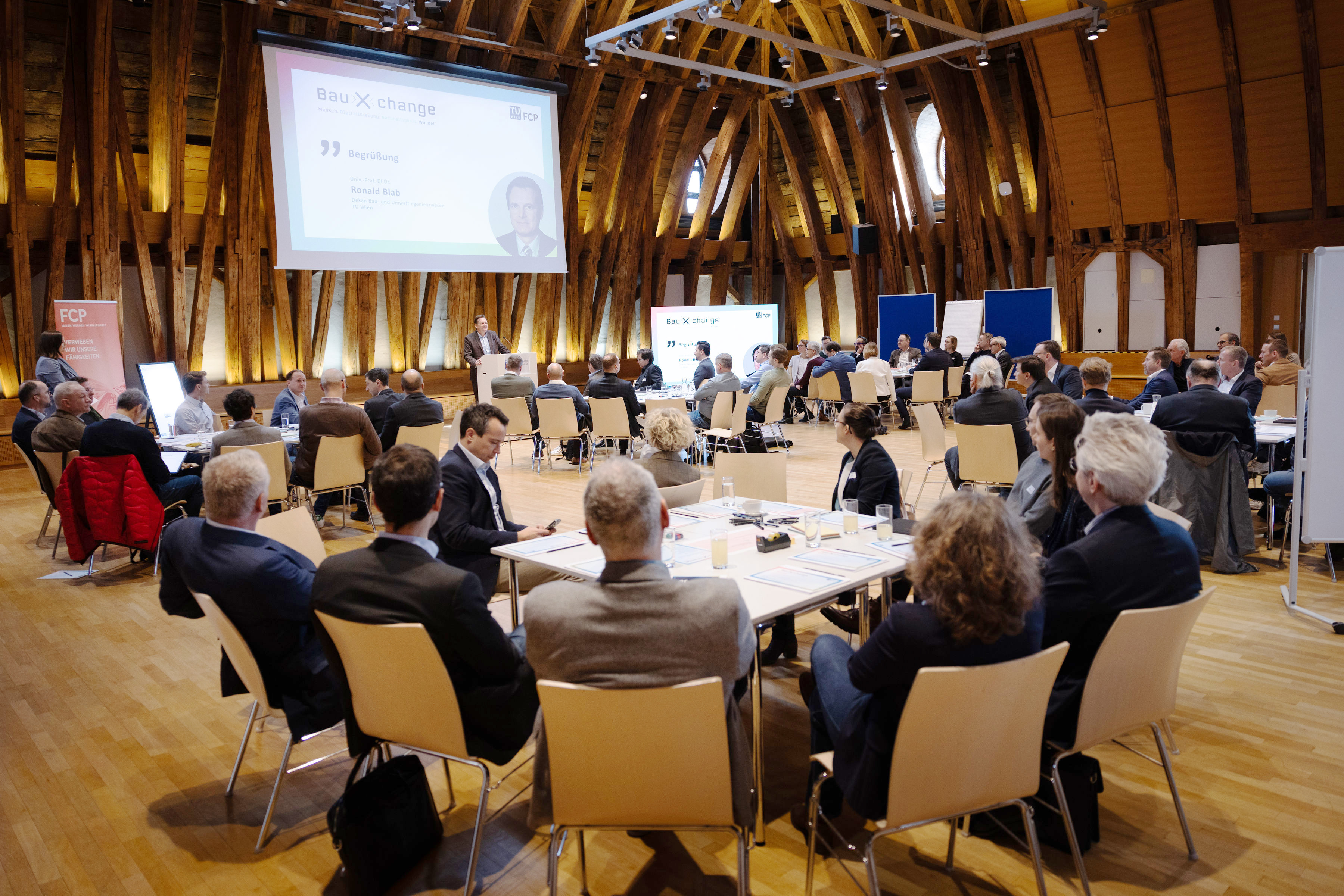
Keynote addresses on future-relevant topics
The main topics “human being”, “sustainability” and “digitization” were treated during the BauXchange workshop by experts in keynote addresses. Prof. Frank Lulei pointed out the necessity of sustainable leadership in his keynote address “Mensch” (Human being). BM DI Stefan Graf, CEO Leyrer + Graf Baugesellschaft m.b.H., pleaded for a reasonable application of digital technologies, which should always be used in terms of cost reduction and according to the client, in his lecture “Digitalisierung” (digitization). Lawyer Dr. Martin Schiefer of Schiefer Rechtsanwälte recommended to consider sustainability holistically, i.e. not only in the field of engineering but also in the business models and on a strategic level. Prof. Ina Goller, BFH Bern, referred to the social component for a successful change. For this purpose, committed and responsible employees and executive personnel were required apart from a common, positive vision.
Dr. Nikolas Popper of the Vienna University of Technology stressed in his lecture “Systemwandel im Bauwesen” (System change in the building sector) how relevant simulation research was for a successful change and pointed out that simulation enabled more efficient use of available resources, better predictability and more flexible adaptations as well as saving of costs and energy.
Group work provides interesting approaches
In a workshop setting six working groups elaborated initial approaches based on the challenges, measurable parameters for the successful implementation, participants and potential resistance in a roadmap “Zukunft im Bauwesen” (Future in the building sector) with the objective of an integrated perception:
Specifications from politics: Construction concerns everybody. Support from politics and the society is necessary. Thanks to political specifications legal frame conditions for sustainable and digital building processes are established, as for example by the increase of the CO2-tax as well as the standardization for guaranteeing uniformity by representative and quick committees. Furthermore, they comprise the communication with stakeholders and the representation of visions in politics like the incorporation of BIM in the coalition contract as already implemented in Germany.
Human resources development and attractivity of the occupational area: Construction requires competence. The strategies for the increase of attractivity of the building sector include the support of “first movers” by role models in management and the support of a sustainable leadership culture. It is emphasized to invest in training, in particular in the field of digitization and social competence. Knowledge transfer and exchange shall take place by means of events and the establishment of a network for young people. Additionally, homogeneous incentive systems shall be created to increase the motivation of the employees. Furthermore, it is encouraged to promote the failure and learning cultures within the companies to create more space for innovative projects.
Economic efficiency: In order to improve economic efficiency, sustainability, digitization and competence in solving problems shall be promoted by new contract models as well as fair competition shall be strived for by means of improved tendering. It is emphasized that competence and experience should be appropriately remunerated. In the field of planning fees should be restructured in such a way that design is considered more in “planning phase 0”. Besides, the importance of cost transparency is highlighted by holistic consideration according to the environment over the whole life cycle.
DI Robert Schedler, managing director of FCP underlined that the future construction processes should be based on the three columns of sustainability (ESG). “In the climate crisis we are not only problem solvers but also part of the problem. Changes in the built environment are necessary, among other things by using environment-friendly materials and energy-efficient technologies.” Mr. Schedler referred to already available solutions like BIM, virtual planning tools and progressive building technologies, “Building projects can be planned more precisely, coordinated in a better way and performed more effectively with digital tools. A further important aspect is that the whole construction process is shaped in a more transparent way..” Mr. Schedler concluded when a successful change takes place, “If we succeed in creating more cooperative contract models or alternative approaches already during project development by integrating stakeholders and having fewer disputes, fewer legal proceedings with the 300 million € of annual conflict costs.”
In a survey the participants expressed their satisfaction with the workshop. For future workshops Prof. Lulei invites clients and political policy makers to actively take part in the dialogue. The roadmap “Zukunft im Bauwesen” is presented to the interested public at the Baukongress by Frank Lulei (Vienna University of Technology) and Robert Schedler (FCP.VCE).
Lecture: “Mensch, Digitalisierung, Nachhaltigkeit und Wandel” (Human being, digitization, sustainability and change)
When: Thursday, 25 April 2024, 03:20 p.m.
Location: Baukongress, room E1 Session 3.1.5
Further information: baukongress.at
Photo rights, captions
BauXchange-01-by-Sebastian-Philipp.jpg: More than 70 representatives of construction, design, research and clients used this chance to actively take part in the change of the building sector.
Photo credit: © Sebastian Philipp, printing free of charge
BauXchange of Vienna University of Technology and FCP is a completely new workshop format where participants actively participated in the dialogue and the change.
Photo credit: © Sebastian Philipp, printing free of charge
BauXchange-03-by-Sebastian-Philipp.jpg: In a workshop setting initial approaches in a roadmap “Zukunft im Bauwesen” (Future in the building sector) were elaborated.
Photo credit: © Sebastian Philipp, printing free of charge
About FCP
FCP (Fritsch, Chiari & Partner ZT GmbH) with its headquarters in Vienna is an internationally active consulting engineering office with approx. 350 employees. With innovative power, know-how, passion and handshake quality FCP supports its clients in Austria and abroad in the implementation of sustainable and innovative projects. The planning and service activities in structural and civil engineering as well as infrastructure and bridge construction comprise climate protection concepts for municipalities, BIM-supported large-scale projects as well as building certifications, greening of structures and climate-friendly mobility concepts. FCP offers perfectly tailored solutions for individual project demands.
Press Contact
FCP Public Relations
Marxergasse 1B, 1030 Wien
prkontakt@fcp.at
